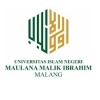BRINGING STUDENTS’ HOME AND FOREIGN CULTURE INTO LANGUAGE CLASSROOM: UNVEILING INDONESIAN EFL TEACHERS’ BELIEF AND PRACTICES
Abstract
In the 21st century teaching, the function of English language classroom is not limited merely to preparing students to be able to communicate with native English language users. But, it is widely to prepare them to be successfully engaged with a global milieu in intercultural settings. However, this situation remains challenging for EFL teachers worldwide. It was evidenced by many scholars that teachers’ positive perception toward interculturality in language teaching did not concurrently lead to the practice of language pedagogy in the classroom. This paper attempts to explore how Islamic Indonesian teachers perceive intercultural competence in the language classroom as well as how it is reflected in their teaching practices. By using electronic questionnaire, data were collected from 20 lecturers teaching Intensive English Course offered in the first semester of new college students majoring English. The results of the study indicated a strong positive belief toward intercultural competence, yet it is not congruent in its pedagogical activity in the classroom. Following this, further research possibility is also discussed in last section of this paper.
Full Text:
PDFReferences
Byram, M. (1997). Teaching and assessing intercultural communicative competence. Clevedon: Multilingual Matters.
Byram, M., Holmes, P., & Savvides, N. (2013). Intercultural communicative competence in foreign language education: questions of theory, practice and research. The Language Learning Journal, 41(3), 251-253. DOI: 10.1080/09571736.2013.836343
Byram, M. & Wagner, M. (2018). Making a difference: Language teaching for intercultural and international dialogue. Foreign Language Annals, 1–12. DOI: 10.1111/flan.12319
Cahyono, B. Y. (2018). Culture and innovation in essay writing project: EFL students’ perceptions. Theory and Practice in Language Studies, 8(11), 1433-1440.
Castro, P., Sercu, L., & Méndez García, M. D. C. (2004). Integrating language and culture teaching: an investigation of Spanish teachers' perceptions of the objectives of foreign language education. Intercultural education, 15(1), 91-104.
Chau, T. H. H., & Truong, V. (2019). The integration of intercultural education into teaching English: what Vietnamese teachers do and say. International Journal of Instruction, 12(1), 441-456.
Chlopek, Z. (2008). The intercultural approach to EFL teaching and learning. English Teaching Forum, 46(4), 10.
Dhanaraj, I. (2013). Lecturer’s perceptions of intercultural communicative competence and its impact on teaching performance: a case study in a New Zealand higher education institution (Master's thesis).
Fantini, A. E. (2000). A central concern: Developing intercultural competence. SIT occasional papers series, 1, 25-42.
Fernández-Agüero, M., & Chancay-Cedeño, C. (2019). Interculturality in the Language Class–Teachers’ Intercultural Practices in Ecuador. RELC Journal, 50(1), 164-178.
Gu, X. (2016). Assessment of intercultural communicative competence in FL education: A survey on EFL teachers’ perception and practice in China. Language and Intercultural Communication, 16(2), 254-273.
Li, Y. (2016). Intercultural awareness in foreign language teaching: A Chinese perspective. Journal of Language Teaching and Research, 7(4), 768-772.
Liddicoat, A. J. (2002). Static and dynamic views of culture and intercultural language acquisition. Babel, 36(3), 4-11.
Padem, S. (2013). Teaching values through listening and speaking textbooks. Journal of Educational and Instructional Studies in The World, 3(2), 94-100.
Sakhiyya, Z. (2011). Interrogating identity: The international standard school in Indonesia. Pedagogy, Culture & Society, 19(3), 345-365.
Tran, T. Q., & Dang, H. V. (2014). Culture teaching in English language teaching: teachers' beliefs and their classroom practices. Korea TESOL Journal, 11(1), 207-223.
Tran, T. Q., & Duong, T. M. (2018). The effectiveness of the intercultural language communicative teaching model for EFL learners. Asian-Pacific Journal of Second and Foreign Language Education, 3(1), 6.
Wahyudi, R. (2012). Intercultural languages education and its complex insights: The case of Indonesian Islamic higher education. Theory and Practice in Language Studies, 2(9), 1783-1791.
Xiaohui, H., & Li, S. (2011). Teacher Cognition of Intercultural Communicative Competence in the Chinese ELT Context. Intercultural Communication Studies, 20(1).
Young, T. J., & Sachdev, I. (2011). Intercultural communicative competence: Exploring English language teachers’ beliefs and practices. Language awareness, 20(2), 81-98.
Zhou, Y. (2011). A study of Chinese university EFL teachers and their intercultural competence teaching.
DOI: https://doi.org/10.18860/jeasp.v3i1.9770
Refbacks
- There are currently no refbacks.

This work is licensed under a Creative Commons Attribution-ShareAlike 4.0 International License.







Editorial Office:
Pusat Pengembangan Bahasa
Program Khusus Pengembangan Bahasa Inggris (PKPBI)
Universitas Islam Negeri Maulana Malik Ibrahim Malang
Gedung C lantai 1
Jl. Gajayana No 50 Kota Malang, Jawa Timur, Indonesia
Kode Pos 65144, Telp/Fax : (0341) 570872
Email: jeasp@uin-malang.ac.id
JEASP : Journal of English for Academic and Specific Purposes is licensed under a Creative Commons Attribution-ShareAlike 4.0 International











